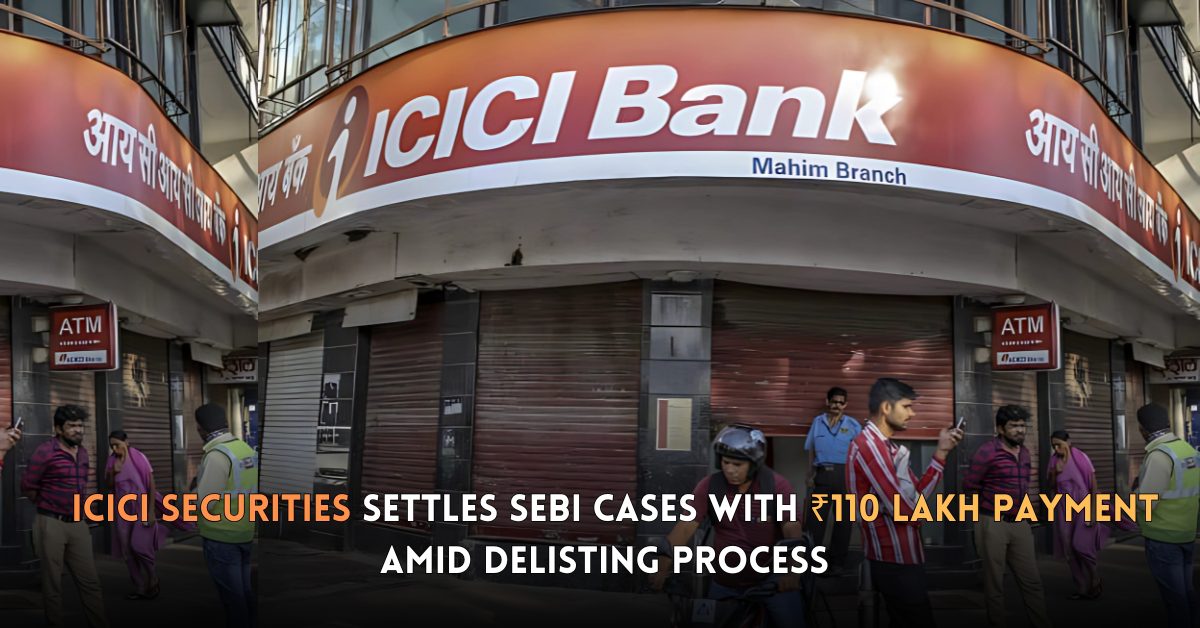• Regulatory Compliance: ICICI Securities Pays ₹110 Lakh to SEBI to Resolve Violations
Unmesh Gujarathi
Sprouts News Exclusive
ICICI Securities has recently settled multiple cases with the Securities and Exchange Board of India (SEBI) concerning alleged regulatory violations, paying a total of approximately ₹110 lakh.
Settlement Details
August 2024 Settlement
The company paid ₹69.82 lakh to resolve issues related to its merchant banking operations. SEBI’s inspection highlighted deficiencies in ICICI Securities’ due diligence processes as a merchant banker. To avoid prolonged proceedings, the firm opted for a settlement, which was finalized on August 20, 2024.
January 2025 Settlement
In a separate case, ICICI Securities paid ₹40.2 lakh in January 2025. This pertained to allegations of inadequate monitoring of authorized persons, where trading terminals were operated from unreported locations, and lapses in overseeing trading practices, including the misuse of client login credentials. The settlement was completed on January 1, 2025.
These settlements come as ICICI Securities is in the process of delisting from stock exchanges. The National Company Law Tribunal (NCLT) approved the delisting scheme in August 2024, allowing shareholders to exchange 100 shares of ICICI Securities for 67 shares of ICICI Bank.
By addressing these regulatory concerns through settlements, ICICI Securities aims to streamline its operations and focus on its integration with ICICI Bank.
Sprouts News will continue to monitor developments related to ICICI Securities and its delisting process, ensuring our readers receive the most up-to-date and exclusive coverage. Stay tuned for more updates from Sprouts News.
Controversy:
ICICI Bank, one of India’s leading private sector banks, has been involved in several controversies over the years. Notable incidents include:
ICICI-Videocon Loan Scam (2009-2011):
Between June 2009 and October 2011, ICICI Bank sanctioned loans totaling ₹1,875 crore to companies associated with the Videocon Group. These loans were later declared non-performing assets, resulting in a loss of ₹1,730 crore for the bank. Investigations revealed that Chanda Kochhar, then Managing Director of ICICI Bank, allegedly facilitated these loans in exchange for undue benefits to her husband’s company, NuPower Renewables. In December 2022, Chanda Kochhar, her husband Deepak Kochhar, and Videocon’s Venugopal Dhoot were arrested in connection with this case.
Cobrapost Sting Operation (2013):
In 2013, an undercover investigation by the online portal Cobrapost alleged that ICICI Bank, along with two other private banks, was involved in money laundering activities. The sting operation, dubbed ‘Operation Red Spider,’ purportedly showed bank officials agreeing to accept unverified cash and invest it in various schemes, violating anti-money laundering laws. Following these allegations, ICICI Bank suspended 18 employees and initiated an internal inquiry.
Data Breach Incident (April 2024):
In April 2024, ICICI Bank experienced a significant data breach where sensitive information of approximately 17,000 new credit cards was exposed to unintended customers via the bank’s iMobile Pay app. Affected customers could view full card details, including numbers and CVV codes, of other users. The bank promptly blocked the compromised cards, issued replacements, and assured customers of compensation for any financial losses incurred.
Also Read: MCGM Engineering Examination: Potential Mega Scam?
Regulatory Penalty (October 2023):
The Reserve Bank of India (RBI) imposed a penalty of nearly ₹12.2 crore on ICICI Bank in October 2023 for multiple regulatory violations. These included extending loans to companies where two of the bank’s directors held board positions, marketing non-financial products beyond the bank’s remit, and delays in reporting fraud incidents. This fine was one of the largest penalties imposed on a private bank in India at that time.
Delisting of ICICI Securities (August 2024):
In August 2024, the National Company Law Tribunal (NCLT) dismissed objections from minority shareholders regarding ICICI Bank’s plan to delist its brokerage arm, ICICI Securities. The bank, holding approximately 75% of ICICI Securities, proposed a share-swap deal to acquire the remaining stake. Minority shareholders argued that the delisting undervalued ICICI Securities’ shares and adversely affected their interests. Despite these concerns, the tribunal ruled in favor of ICICI Bank, allowing the delisting to proceed.
These incidents highlight the various challenges and controversies ICICI Bank has faced, reflecting the complexities inherent in the banking sector.




